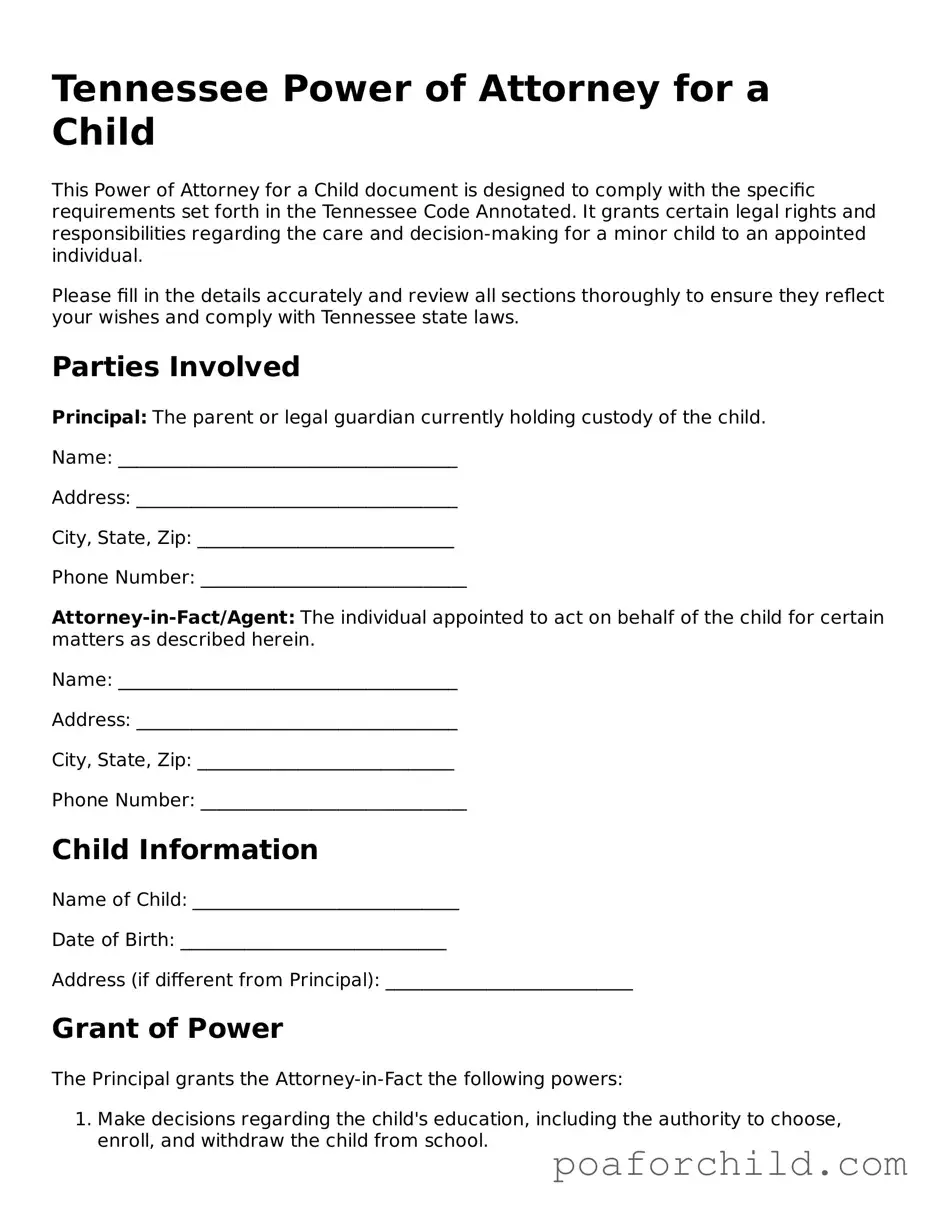Detailed Guide for Using Tennessee Power of Attorney for a Child
When the need arises to appoint someone to make decisions for a child, the Tennessee Power of Attorney for a Child form comes into play. This document allows a parent or guardian to legally authorize another person to act in their stead for matters concerning the child's welfare, education, and health. It's a significant step that requires careful completion to ensure the welfare of the child is protected and the appointed person clearly understands their responsibilities. Here, we will guide you through each step to fill out the form accurately and effectively.
- Begin with the date. Write the current date at the top of the form to mark when the power of attorney goes into effect.
- Identify the parties involved. Fill in the full names and addresses of the parent(s) or guardian(s) granting the power, as well as the full name and address of the appointed attorney-in-fact, the person who will be making decisions for the child.
- Detail the child's information. Include the child’s full name, birthdate, and address to ensure there's no confusion about who the document pertains to.
- List the powers granted. Specify the exact powers the parent or guardian is transferring to the attorney-in-fact. This can range from general welfare and health care decisions to enrollment in educational programs. Make sure the description is clear and comprehensive.
- Specify the duration. Clearly state the start and end dates for the powers granted. Tennessee law has specific limits on how long these powers can remain in effect, so ensure compliance with the current legal standard.
- Acknowledge limitations. It’s important to note any powers or decisions that the parent or guardian does not want the attorney-in-fact to have. This section helps in setting boundaries and protecting the child’s interest.
- Signatures. The form must be signed by the parent(s) or guardian(s) in the presence of a notary public. Ensure all signing parties have a valid ID for verification by the notary.
- Notarization. Lastly, the notary public will sign, date, and seal the document, officially acknowledging that it was signed willingly by all parties.
After completing these steps, the Tennessee Power of Attorney for a Child form is now prepared to serve its purpose. It’s a powerful document that ensures a child’s affairs are managed with care should the parent or guardian not be available to do so. Keep the original in a safe place and provide copies to relevant parties, such as schools or healthcare providers, to ensure the appointed attorney-in-fact can act on behalf of the child when necessary.
